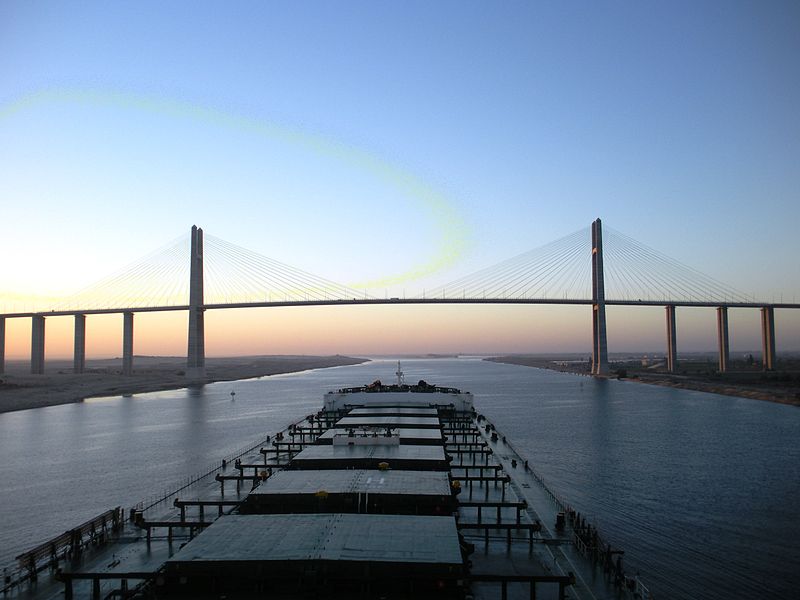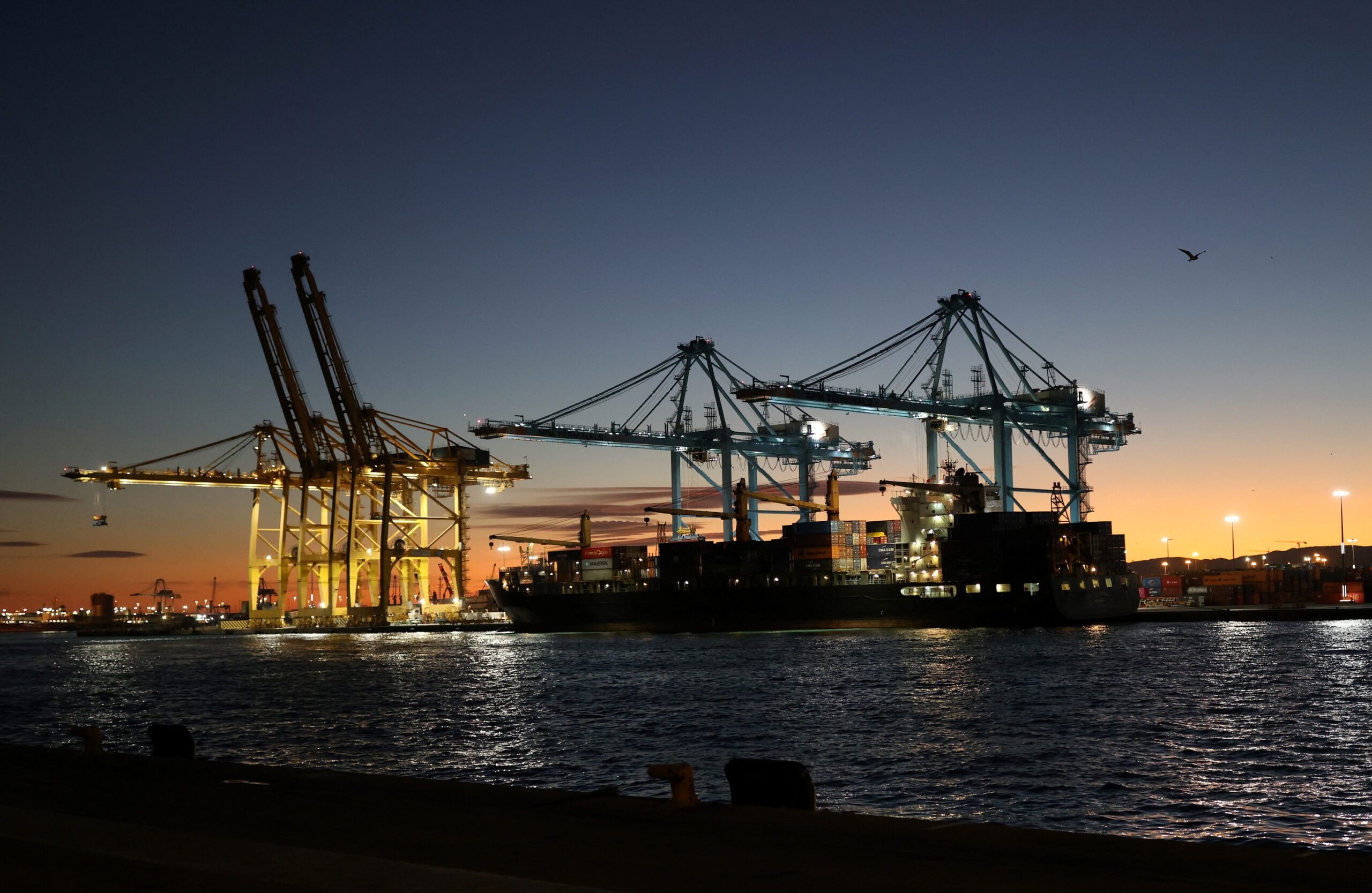Suez Canal Bridge. Image by Aashay Baindur
 HERZLIYA, Israel, Nov 26 (Reuters) – Some surprising traffic passes through the Suez Canal each day.
HERZLIYA, Israel, Nov 26 (Reuters) – Some surprising traffic passes through the Suez Canal each day.
Beneath the decks of the giant cargo ships that flow through the man-made channel, innumerable creatures also cross the waters and settle in the Mediterranean Sea, damaging the local ecology and coastal economies.
With Egypt planning to dig a new $8 billion canal alongside the 145-year-old historic waterway — a project that officials say will boost global commerce — the invasion of species from the Red Sea could swell.
“If you have more ships and the canal is wider, then the probability of species making the journey significantly increases,” said Noa Shenkar of Tel Aviv University’s zoology department and museum of natural history.
Shenkar brought scientists from across the Mediterranean to a workshop this week in Israel to help formulate a plan she hopes will mitigate the effects of an enlarged canal invasion.
Egypt was not represented at the workshop, and Egyptian officials were not immediately available to comment.
The incursion largely follows water currents north from the Red Sea. Already more than 700 non-indigenous species have populated the Mediterranean, she said.
They can hitch a ride on the hull or in ballast water of ships or simply swim through. Counter-clockwise currents then push them up the eastern shoreline, and over time some have reached two-thirds of the way to Gibraltar.
Swarms of jellyfish that invaded in the 1970s now menace summer bathers and clog intake pipes of power plants in Israel. Venomous pufferfish have become a headache for local fishermen. Small ascidians, or sea squirts, that stick to the bottom of ships threaten to blanket the seabed.
New arrivals could include a variety of mollusks, fish, crustaceans and others, Shenkar said, but it was hard to predict which would manage to make the journey.
Possible counter-measures included the creation of a barrier with highly salted water at the canal’s exit or engineering a strong current to make it difficult for sea life to migrate from their natural habit, the workshop heard.
The Suez Canal once had a natural barrier within the passageway — the so-called Bitter Lakes with waters so salty they hindered the passage of sea creatures. But over a century of canal development, the lakes have lost their effectiveness.
Ferdinando Boero, a professor of zoology at Italy’s University of Salento, said that while the Suez Canal was a notorious case, maritime invasions happen around the world and only a global shift in attitudes would prevent them.
Once a species arrives, he said, it was often not possible to eradicate them. “There are no simple solutions to complex problems, and these problems are very complex,” he said. (Editing by Crispian Balmer)
© 2014 Thomson Reuters. All rights reserved.

 Join The Club
Join The Club











